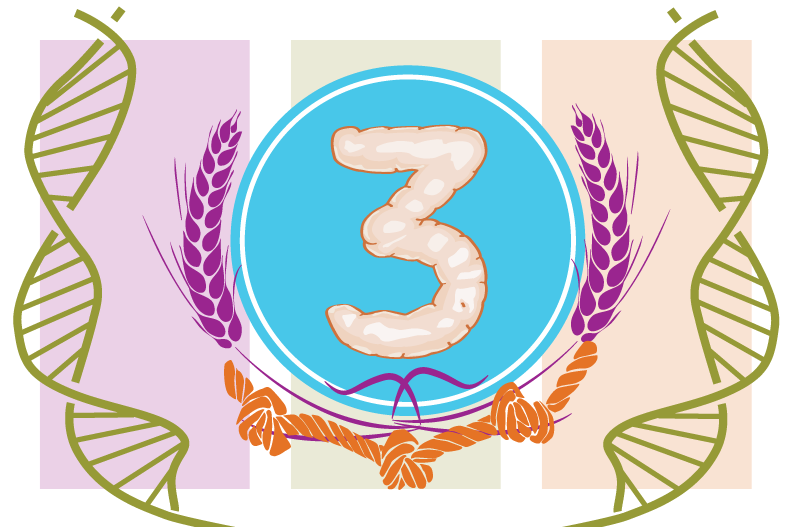Celiac Disease, Crohn’s Disease, and Irritable Bowel Syndrome are among the most common digestive disorders. In all three cases, the cause is unknown and, if diagnosed, they often require lifestyle changes. The best way to manage these digestive disorders is to be aware of the symptoms and factors that may put you at risk. If you are experiencing the symptoms below, schedule an appointment with your doctor to discuss your options.

What Is Celiac Disease?
Celiac disease is an autoimmune disorder where the ingestion of gluten leads to damage in the small intestine.
Causes of Celiac Disease
Those suffering from the disease cannot tolerate gluten, a protein found in wheat, rye, barley, and some oats. When people with Celiac disease consume gluten, their immune systems attack the small intestine and damage the inner lining which is used to absorb nutrients from food.
Celiac Disease Symptoms
- Abdominal pain
- Diarrhea
- Constipation
- Weight loss
- Nausea
- Fatigue
Treating Celiac Disease
Celiac disease is chronic and there is no known cure. People living with Celiac disease must consume a gluten-free diet in order to eliminate symptoms. Gluten is sometimes hidden in processed foods so those with Celiac are advised to always check nutrition labels and ingredients. However, a person should not begin a gluten-free diet without being diagnosed.
RELATED: Infographic: Managing Celiac Disease With a Gluten-Free Diet
What Is Crohn’s Disease?
Crohn’s disease is a severe, chronic inflammatory bowel disease. It causes inflammation, ulcers, and bleeding in the digestive tract.
Causes of Crohn’s Disease
The cause of Crohn’s disease is unknown, but like other inflammatory bowel diseases, it seems to run in some families. Some research links Crohn’s disease to an overactive and inappropriate immune response to the bacteria that normally reside in the intestine, causing damage to the intestines.
Crohn’s Disease Symptoms
- Diarrhea
- Abdominal cramps and pain
- Rectal bleeding
- Anemia
- Weight loss
- Fatigue, weakness
- Nausea
- Fever
- Mouth sores
- Sores, abscesses in the anal area
Did You Know?
There are about 700,000 people currently living with Crohn’s Disease.
Crohn’s Disease Treatment
Your doctor may recommend that you avoid foods that provoke symptoms, including:
- Dairy foods (due to lactose intolerance)
- Highly seasoned foods
- High-fiber foods
- Other biologic treatments
Medication or surgery may also be an option.
RELATED: Crohn’s Disease: Symptoms, Causes, and Treatment
What Is Irritable Bowel Syndrome?
Irritable bowel syndrome (IBS) is a digestive disorder that leads to abdominal pain and bowel changes. It is the most common intestinal problem that causes patients to be referred to a bowel specialist (gastroenterologist).
Causes of Irritable Bowel Syndrome
The reasons why IBS develops are not clear, but it can occur after an infection of the intestines. Another trigger may be stress. Signals go back and forth between the bowel and brain, which affect bowel function and symptoms. The nerves can become more active during stress, which can cause the intestines to be more sensitive and contract more.
IBS is twice as common in women, affecting 1 in 6 women.
Irritable Bowl Syndrome Symptoms
- Abdominal pain
- Gas
- Fullness
- Bloating
Treating Irritable Bowel Syndrome
Lifestyle changes can help in some cases of IBS. For example, regular exercise and improved sleep habits may reduce anxiety and help relieve bowel symptoms.
The following dietary changes may help:
- Avoid foods and drinks that stimulate the intestines, such as caffeine, tea, or cola
- Eat smaller meals
- Increase fiber in the diet – this may improve constipation, but make bloating worse.
Talk with your doctor before taking over-the-counter medications.
